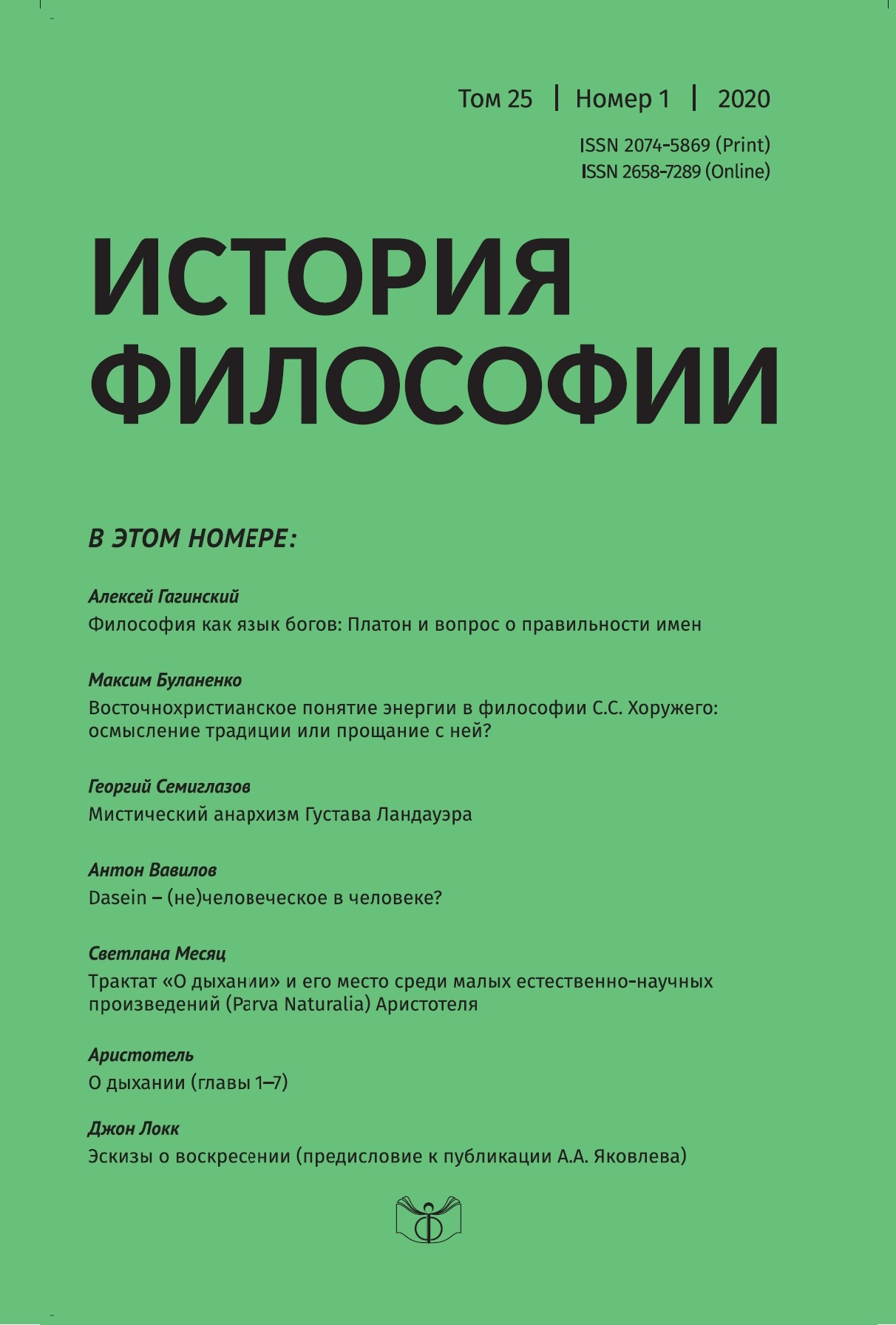Treatise “On Breath” and Its Place Among the Small Psychological Works (Parva Naturalia) of Aristotle
Keywords:
Aristotle’s psychology, Aristotle’s physiology, ancient theories of respiration, inhalation and exhalation, cardiac activity, pulsation, lungs, natural heat, pneuma, youth and old age, life and deathAbstract
The publication presents the first Russian translation of Aristotle’s treatise “On Respiration”, which forms the part of the so-called Parva Naturalia – a collection of small psychological works by the philosopher. The group of writings traditionally designated by this title is thematically and methodologically joined with Aristotle’s treatise “On soul” while continuing to study the most important activities of the animate beings common to soul and body. In the treatise “On Respiration” Aristotle studies one such activity, breathing, while pointing out its final, efficient and material causes. At the beginning of the treatise he criticizes in detail the view of Democritus, Empedocles, Anaxagoras, Diogenes of Apolonia and Plato that all animals breathe and reproaches his predecessors for a lack of attention to the final cause of breathing and for the fact that they mistakenly ascribed the ability to breathe to all animals, not only to those that have lungs. The translation is preceded by an introductory paper, which analyzes the content of the treatise, outlines the Aristotelian theory of respiration and gives a brief overview of the controversy about the place of the treatise among the other psychological works of Aristotle.

